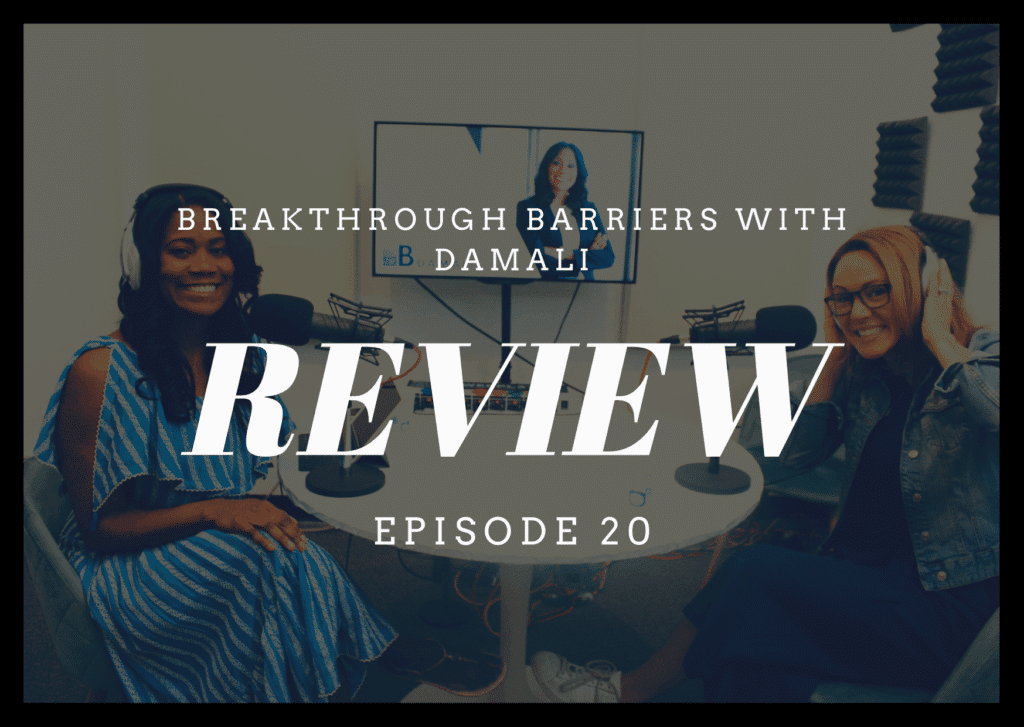This week we had a very insightful episode of Breakthrough Barriers With Damali. Mental health therapist and licensed clinical social worker, Alison Trenk joined us to help tackle two loaded questions. Alison helps people make changes in their lives and reach a healthier mental state so the questions we got were perfect for her.
The first caller was wondering how internal and external factors relate when it comes to diagnosis and treatments. She was wondering how elements such homelessness/unsafe living conditions and say discrimination could cause depression, anxiety or low self-esteem. She was also looking for problem solving techniques that are commonly used with patients struggling with these issues.
Mental health issues may arise from a cluster of symptoms, both internal and external factors could affect it. When Alison assesses her patients she tries to value the bigger issues and how they affect small details instead of just the tangible environment.
Two approaches that Alison uses as a therapist are the same approaches Damali uses as a mediator. Doing collaborative therapy or mediation is very useful. Figuring out how the symptoms, or feelings, the patient is experiencing serves them, what is causing the problem, what isn’t and targeting thoughts and emotions is a place to start. Keeping a holistic view of the client is also important. This will help you learn what is going on with them on a deeper level. Sometimes, therapy is simply not enough and the patient may need to consider psychiatric help. In mediation, Damali tries not to lead the person or people involved toward a particular outcome but instead help them reach a solution which is best for them.
Techniques vary within the psychology discipline and everyone has their own way of doing things. Keep in mind that mental health is fluid and different in every person. Steer away from labelling and keep the intervention objectively about the person, do not stigmatize. Separating the person from the problem is essential. Always be compassionate.
Our second caller wanted our opinion on whether or not she should end a relationship (platonic or not) due to differing views in politics. It is such a big coincidence that this was the topic of one of the calls since Alison and Damali once had to be facilitators for a group of people on both sides of the political parties.
First Damali would ask the caller to consider if the only reason behind the friendship were your shared political views. If you can find other things you have in common then you may find other values in the friendship. Weigh the positives the person has to offer before determining if this is something worth losing a friendship over. Terminating a relationship of any type must be done consciously and analyzed on all levels. Are you gaining something from this person that could go beyond politics? All relationships are about compromising. Try to see their perspective and understand where they are coming from.
A friend once told me while we were eating that she lost a lot of friends due to her political views and was afraid she may lose me too. She explained that as a mediator she has learned to remain neutral. Also, she personally valued the diversity of thought. The world would be so boring if everyone had the same perspective. We may enjoy being around like-minded people, but we learn more from people who think differently than we do.
Communication is key. Try to facilitate a conversation and set out the intentions for the conversations first. Make it clear that this is just a conversation to understand one another and not to shame or blame. In the mediation world we use the term “active listening”. This means you are listening without thinking of the next point, without challenging the other person and without bombarding them with questions. You may find while you are listening that you share many of the same interests are are ultimately looking for the same things from the parties you each support, you just have different outcomes.
Active listening slows down the conversation and the emotions behind it and allows you to summarize and break down what the other person is saying. It will show the person you were listening to what they were saying. The more you practice this tool, the better you’ll become at it.
Do you have any barriers that we can help you break through? If so, you can leave a brief message at 646-363-6322 or comment below on our interactive blog.
Please follow us on Twitter, Facebook, Instagram and LinkedIn @BreakthroughADR.
